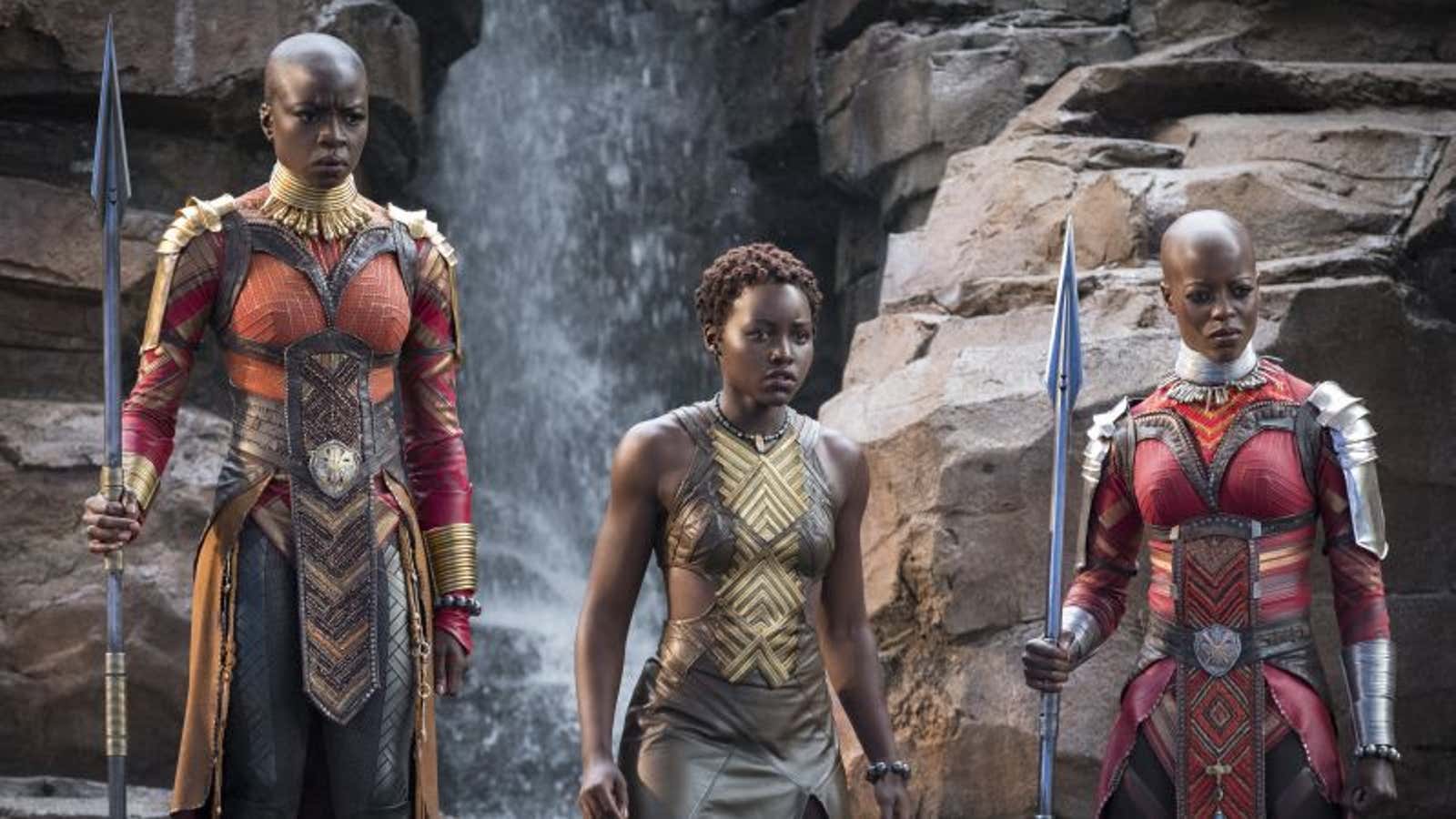Marvel’s Black Panther movie has been a hit across Africa especially for its portrayal of African cultures in fictional Wakanda. And its popular Dora Milaje characters have inspired new stories based on real-life events in the ancient Dahomey kingdom in West Africa, particularly an all-female military unit dubbed the Dahomey Amazons.
Interest in the Amazons has peaked since the release of Black Panther and has resulted in productions attempting to bring their story to life. Academy Award winners Lupita Nyong’o and Viola Davis have teamed up for The Woman King, a movie based on the Dahomey warriors while Marvel has also announced a three-part comic series focused on the Dora Milaje to be written by Nigerian-American author, Nnedi Okorafor. The latest production inspired by the Amazons is a television series to be co-developed by EbonyLife TV, a five-year old Nigerian television network, and Sony Pictures Television.
It’s easy to see why the story of an ancient all-female military unit in Africa might make a gripping watch especially in the post-#MeToo era. First set up as elephant hunters in the 17th century, the group slowly morphed into a military unit and became protectors of monarchs in Dahomey, a kingdom in modern day Benin Republic in West Africa. Their legend was likely sealed when they famously fought off French colonial forces in the first and second Franco-Dahomean wars in the 1800s. Black Panther’s box office success with its mainly black cast and story rooted in African culture suggests that other richly told, visually compelling stories about Africa, fictional or not, might be successful.
But the Amazons’ real-life exploits also comes with some baggage. As a militia unit of Dahomean kings, the Amazons often fought wars against neighboring kingdoms in West Africa to secure the kingdom’s main source of income in the 18th century: supplying slaves to the Atlantic slave trade.
It’s unclear if either of the planned productions so far will focus on much of the slave trade though. Hannah Minghella, president of TriStar, the American film studio that has acquired worldwide rights to The Woman King says it will be a “powerful true story of an extraordinary mother-daughter relationship” while EbonyLife TV says its show will ”tell the empowering story of the all-female Warriors and show the ultimate strength of women coming together, fighting to protect and honour their people.”
While many fans are excited at the opportunity to watch a Black Panther-related “spin-off” there’s also growing awareness about the original Dora Milaje’s role in the slave trade. Dahomey was one of the biggest slave exporters during the peak of the transatlantic slave trade and many of the markers remain in Benin Republic, where the government is building two museums in partnership with the United States’ Smithsonian Institution.
